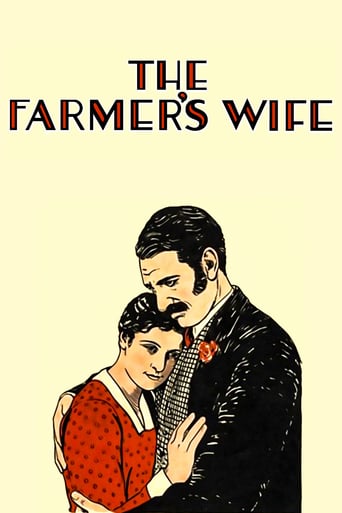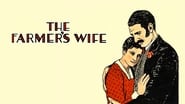jacobjohntaylor1
I do not like most love stories. And this no exception. This movie has an awful story line. I is very slow and boring. Do not see this movie. If is an awful movie. This movie will bore you to tires.
utgard14
Slight but enjoyable early Alfred Hitchcock movie about a widower (Jameson Thomas) who sets out to find a new wife with help from his loyal housekeeper (Lillian Hall-Davis). It's a charming and touching story. Not quite what you would expect from the eventual Master of Suspense. It's a good-looking film, as well. Thomas and Davis are both likable. Gordon Harker is fun as the farmer's handyman, Churdles Ash. Love that name. It's nothing to get worked up over but a pleasant enough film that's worth a look to more than just Hitchcock completists.
TheLittleSongbird
Alfred Hitchcock- my personal favourite director- has done better with the likes of Psycho, Vertigo, Rear Window, Rebecca, The Lady Vanishes, Strangers on a Train and North By Northwest but he has also done worse with Juno and the Paycock, Champagne, Number Seventeen, Jamaica Inn, Topaz and Under Capricorn(though all have their redeeming merits). The Farmer's Wife is neither among the best or worst of Hitchcock, but it is still well worth watching and among the better of his silent films. It is too long, can get pedestrian and somewhat too slight in places(with a beginning that takes a little too long to set up) and the music score can feel repetitive. However, it is well shot and has lovely scenery, one of the better looking films of Hitchcock's silent era. Prepare yourself for a lot of point-of-view camera shots but they are not distracting at all(some may think differently though). Hitchcock directs with assurance and technical skill though he has done better in films more in his comfort zone. With the house party there are many subtle touches where you are thinking "yeah, this is unmistakably Hitchcock". The comedy is funny and charming if occasionally falling on the broad side, thankfully it is not overplayed and played with a degree of subtlety while making clear that the actors are enjoying themselves. The story is not always involving but does have its charms and you will be drawn in by the comedy and the likable if stock characters, it may have its slow spots but stick with it. The ending is very touching. The acting is good, again at times broad but not too much or that continuous. Gordon Harker is the standout and is immensely fun to watch, though Lillian Hall-Davies is suitably sympathetic and Jameson Thomas carries the film competently(his character is not easy to warm to straight away this said). Overall, interesting and providing that you don't expect masterpiece status- this is early Hitchcock where he was still finding his feet/style in a way- is also a good film. 7/10 Bethany Cox
Brian_o_Vretanos
The first half is rather slow, but keep going - it's definitely worth it. The humour in Hitchcock's films is generally based around great character actors (e.g. Jessie Royce Landis in To Catch a Thief and North by NorthWest), and here not one of the actors disappoints. Lillian Hall Davis has a better part in the Ring (also 1928 - Gordon Harker is again very amusing in it too), but is lovely in this film. Sound would have added nothing. My 8-year old daughter was apprehensive about watching a silent film, but once things started to get going in the second half, was hooked.Hitchcock referred to it in later years as one of his "photographed plays", but the action occurs in several locations, so is nowhere near as constrained as many of his films (plays or not). In fact, even though the location shots are few and far between, they really give this film a non-studio feel.All of Hitchcock's films are notable for their visual storytelling (look at the initial scene-setting in Rear Window that speaks volumes without a single word being uttered), and it is interesting to see the origins of this, and the great influence of German Expressionism.




